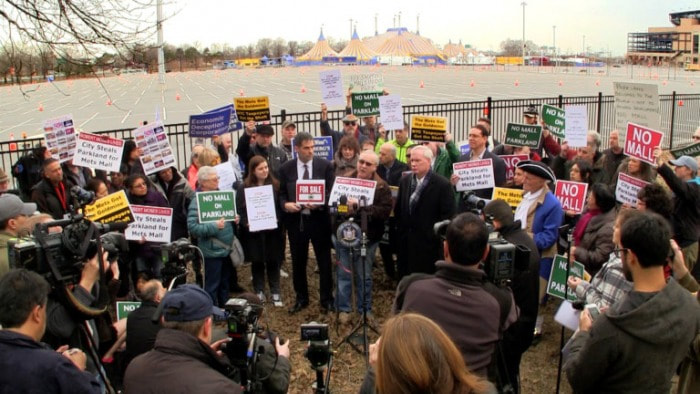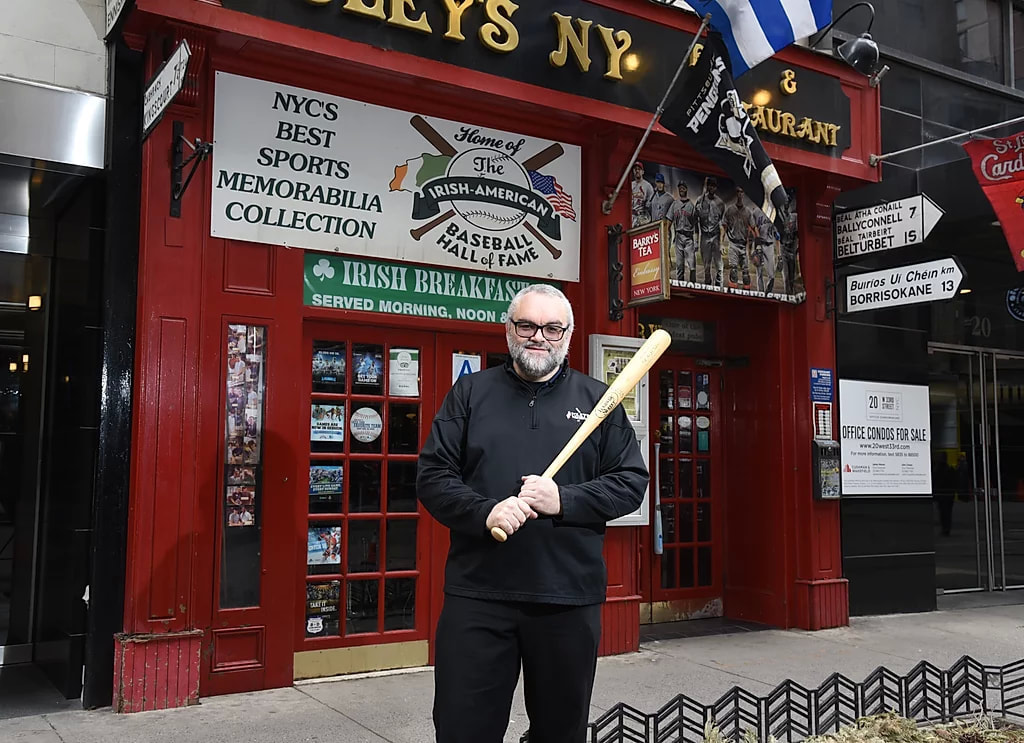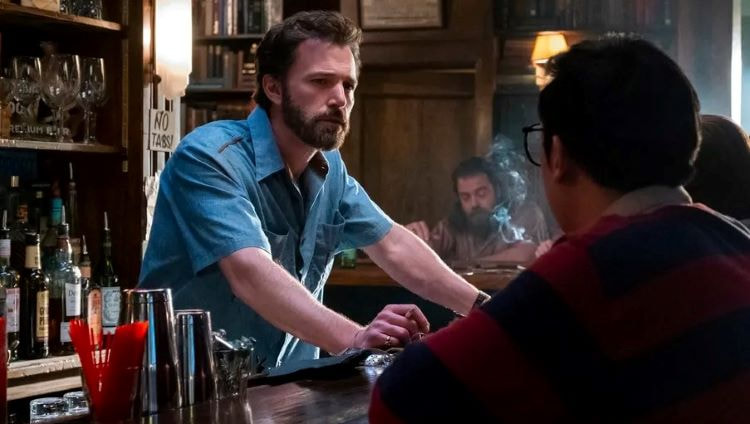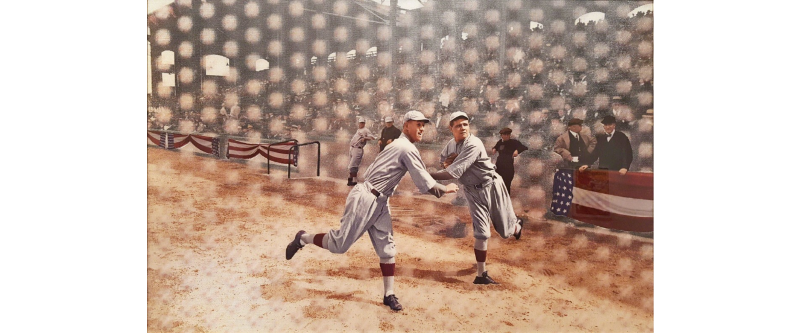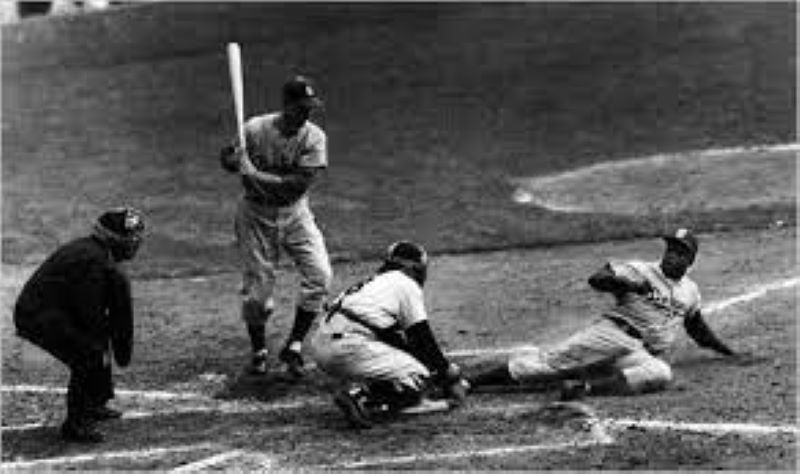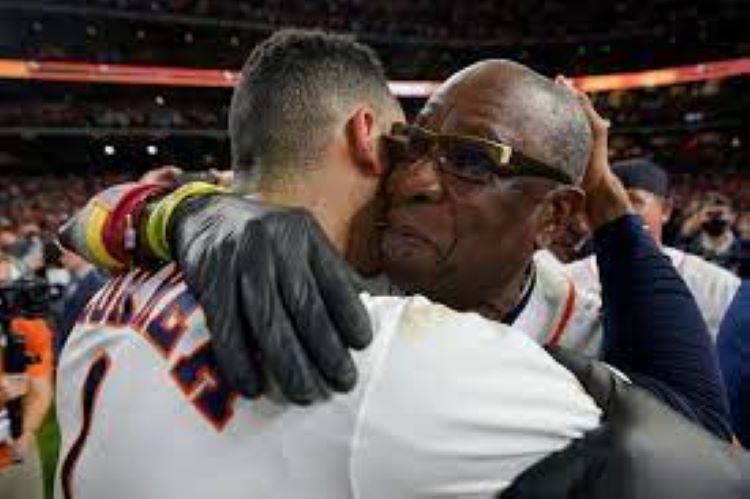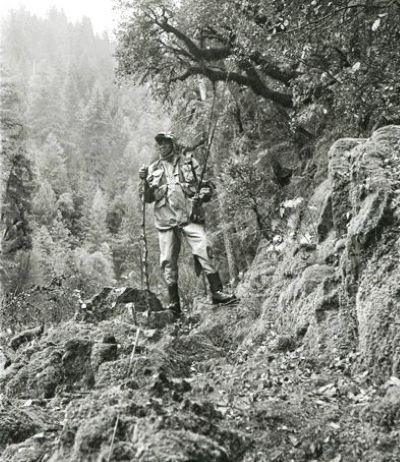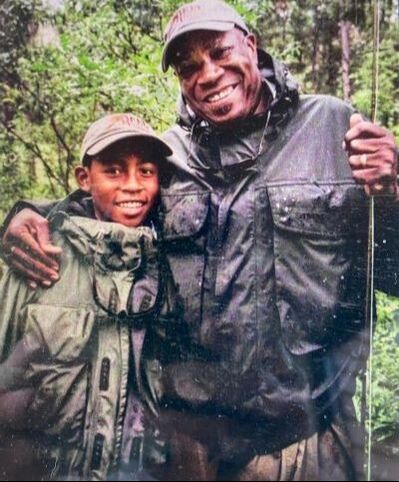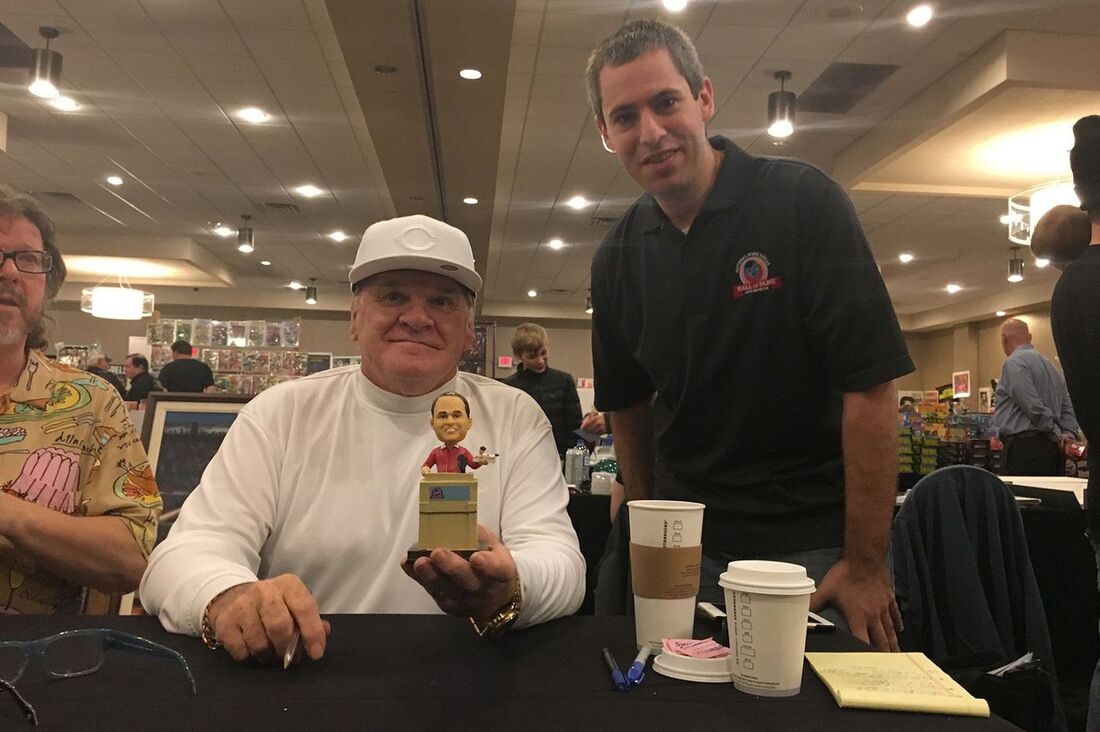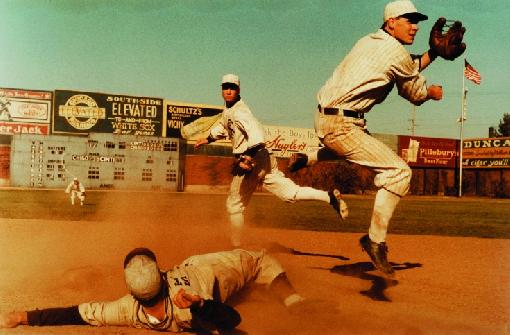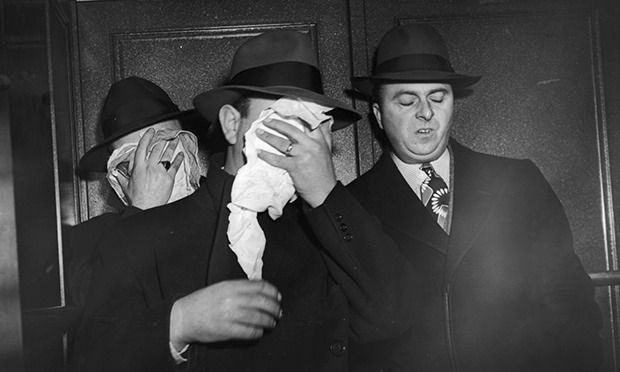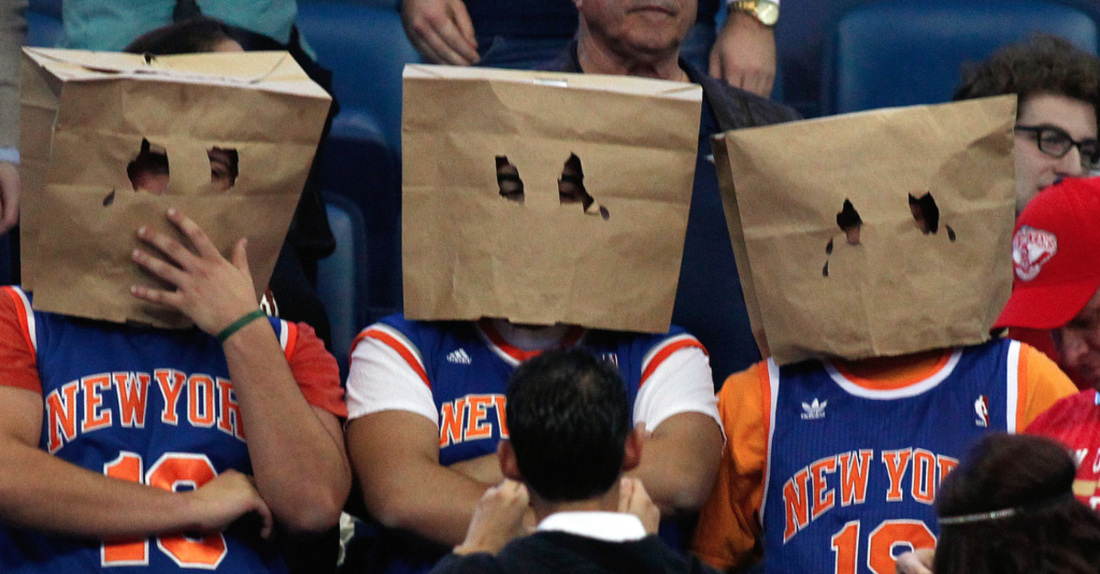|
It's bad enough that Baseball Commissioner Rob (Roll ‘Em) Manfred has brought about a sleazy era of gambling on the sport that has banned Pete Rose for life.
Baseball is also the former holier-than-thou business that banned Willie Mays and Mickey Mantle for fronting for gambling dens after their retirement. They were reinstated, but then Rose got busted for life for violating gambling rules. Nowadays baseball runs blatantly insulting commercials of young males displaying their insecurities by betting on sports events. Some hitter in a distant ballpark smacks a double off the wall and the young man leaps from his chair, as if he himself hit the damn ball. Encouraging gambling is Rob Manfred’s game, and maybe Steven A. Cohen’s world, on deck. The Mets’ owner is pushing to see if he can get away with building a gambling den a dice throw away the ball park named after a bank. Cohen has been an activist owner since taking over the Mets – getting rid of a lot of deadwood in the organization and spending millions upon millions for better players plus activists like Billy Eppler and Buck Showalter. Those are the current conditions, and Cohen spends and spends. (He also showed great showman instincts by staging two of the best feelgood events I’ve ever seen in a ballpark – the retirement of the No. 17 of Keith Hernandez, and reviving the Old Timers’ Game and festivities, including a dying John Stearns, and survivors of Mets’ stalwarts Tommie Agee, Alvin Jackson and Bill Robinson. Events like these do not just happen. They take money, and staff, and good instincts on the part of the still-new owner. One suspects Cohen will even go ahead and sign Carlos Correa, unless Correa truly has a lead leg. Cohen is no fool. He avoided getting stung by over-paying for the five-innings-a-week pitcher, Jacob deGrom, despite the grand memories of when deGrom was healthy. (As for deGrom’s cold-blooded “I’m rich! I’m rich!” smile when he bolted from the Mets with nary a kind word about the good times in Flushing: As we say in Queens, Yeccch!) Cohen understands the process of making more and more money. He has noticed the bleak concrete emptiness of parking lots -- “50 acres of asphalt" -- to the west of New Shea Stadium, and he has envisioned late-model cars bringing lucky tigers escorting handsome women, with money to burn. Or at least, that is the image. Fortunately, the governments of New York city and state still have a chance to veto a gambling den on very public land. (Wait, don’t Mets fans park their cars there 81 home games a year? Isn’t traffic bad enough in that tangled sector?) According to the Wall Street Journal, Cohen held an open house for interested Queens types the other day. No fool, Steven A. Cohen. He played down the lust for a gambling den by saying he just wanted to hear the opinion of the Queens folks – known for their cagey urban instincts (sussing out the criminality and bullying of former Queens resident Donald Trump.) At the open house, my Queens homeys seemed to voice a skeptical attitude toward the gambling den. According to the WSJ, the folks who showed up – for a ballpark frank! – voiced preference for live music, dining, art exhibits and festivals rather than gambling. The WSJ reported that Laura Shepard, a community organizer for the transit advocacy group Transportation Alternatives, told Cohen that the development should be a destination that people can walk, bike or take transit to — not just drive. “Personally, I don’t want to see the casino,” she said. “Most people want more green space, concerts and community events.” There is a lot of communal pride in Flushing-Corona-Jackson Heights-Forest Hills swath of Queens, home to a hundred languages and food tastes. This is the same region that fought back an attempt to build a soccer stadium on the crowded public fields of Flushing Meadows park a couple of decades ago. A big-time soccer stadium will soon be built where the chop shops once hunkered. Isn’t that enough upgrade for anybody? The locals should tell Cohen and Manfred: Go gamble somewhere else. Go to Atlantic City, that once bled the great businessman Donald J. Trump. Go to hilly Connecticut where white marauders once slaughtered Indigenous people near the site of today’s Foxwoods -- tainted grounds, now packed with roulette wheels and poker tables and sporty folks. Here’s one idea for Stephen Cohen’s “50 acres of asphalt:” Mara Gay of the New York Times recently wrote: “More and more, living in New York is out of reach not just for working-class or middle-class residents but nearly anyone without a trust fund.” I bet Steven Cohen could make a few bucks from something actually needed, like moderate-cost housing. Then, there is this. One of the great New York City treasures of recent decades – an Irish/baseball pub, if you can imagine, named for a gremlin sportswriter, Red Foley – had a trove of baseball souvenirs covering every inch of wall and ceiling across the street from the Empire State Building. But the pandemic forced the proprietor, Shaun Clancy, to close down (paying his workers for at least a month, out of heart.) Shaun is now cooking at a refuge for the homeless on the Gulf Coast of Florida; he chats up the weary while doling out something filling and maybe even healthy. I bet you – pardon the expression – that if Steven A. Cohen erected a Foley’s II on the ”50 acres of asphalt,” Shaun would dust his vast souvenirs from its storage place, and oversee a renaissance of Foley’s II. And patrons could teeter discreetly to the 7 Line or the LIRR station, staying off the highways. Win-win. Steven A. Cohen, meet Shaun Clancy. Maybe it’s the pandemic, but people seem to be forgetting the dangers of alcohol and gambling.
I base this on the recent approval of gambling outlets in New York State plus the avalanche of gambling advertisements on baseball broadcasts in the reign of Commissioner Rob Manfred. Um, does the name Pete Rose strike a familiar chord? Last I looked, that sick puppy is still banned for doing what the alluring TV ads urge people to do – bet the rent or the grocery budget on the wayward bounce of a baseball with Rob Manfred's signature on it., And the dangers of alcoholism seem to be minimized by a new movie directed (not produced, as I originally wrote) by, of all people, George Clooney, for whom I have high respect. Clooney has sent forward a movie, “The Tender Bar,” adapted from a fine book by J.R. Moehringer about his exposure to alcohol as a very young man, admiring his bartender uncle and missing his absentee father, leading to his eventual admission of powerlessness toward alcohol as an endangered adult. “The Tender Bar” movie is being hawked every couple of paragraphs on my incoming Web glut. I get the point. Little kid, hanging out in a pub, gets pulled into the life. I was tempted to push the button to watch the movie on my laptop, but then I read two rather different reviews of the movie in The New York Times. Critic A.O. Scott suggested the movie is lightweight, skipping from episode to episode: “Ít’s a generous pour and a mellow buzz.” But free-lance critic Chris Vognar takes a more critical look at the dangerous slide of a young man, made clear in the original book. Vognar writes: “…for a film with the word ‘bar’ in its title, it contains remarkably little insight about alcohol, where it’s consumed, and what it does.” The two critics talked me out of watching. Why, you ask, do I take gambling and drinking so seriously? I’ve seen gambling up close and have great respect for people who seek out Gamblers Anonymous and reinforce themselves, regularly. I have also seen alcoholism up close, having helped Bob Welch write his book, “Five O’Clock Comes Early,” about how he was having blackouts in his early 20s, jeopardizing his pitching career with the Los Angeles Dodgers, to say nothing of his life. By the time I signed on for his book, Bob was already sober from a hard month at a rehab center, and he was an advocate of daily reminders to stay sober. I later spent a family week at the center, and took a great deal from the process, from seeing endangered lives be turned around. Bob knew the dangers, and he verbalized them – part of the process. “I choose to be sober today.” As far as I know, he stayed sober for the rest of his life, which ended tragically young, 57, from an accident. Now I have a close friend who reminds himself daily how he, and Alcoholics Anonymous, saved his life. Why do these reviews of “The Tender Bar” strike close to home? As it happens, I live close to Moehringer’s home town, and have spent too many long minutes waiting for a red light to change, staring into the silhouettes in Moehringer’s pub. Plus, I have known several relatives of Moehringer, and have been apprised that he was not exaggerating his childhood. His book was great; I’ll skip the movie. Now, back to gambling. We all know how much money is gambled on sports, every day, everywhere. (The first college game I ever saw in the old Madison Square Garden was a dump, Kentucky stunningly losing to Loyola of Chicago.) I consider “Eight Men Out,” about the Chicago White Sox players who dumped the 1919 World Series, to be the best sports movie I know. Gambling did not go away when Pete Rose got busted for betting on baseball, including games in which he participated as manager (and, I am sure, as player.) I remember how the late baseball commissioner, Bart Giamatti, adamantly criticized all gambling --- including government-run lotteries. For Major League Baseball to permit gambling ads is dangerous; for New York State to permit gambling sites is also dangerous. (For that matter, I see that The New York Times, that great newspaper, is spending a ton of money to acquire a website, “The Athletic,” that is heavy into gambling odds. How does that impact the parent company when gamblers make or lose money via odds listed in that outlet?) We have a social brain fog that accepts drinking as a mellow haze that can be controlled, that encourages people to bet on capricious games. Then again, we see dopes like Novak Djokovic and Kyrie Irving and Aaron Rodgers misleading and blustering about vaccinations. Plus, an entire political party is going along with thugs invading the Capitol. Can we blame the pandemic for all this? Let’s get this straight. Think of the Houston-Atlanta matchup as the World Series – an event unto itself -- not the end of a long and grueling tournament. Think of the World Series when it stood alone as a treat, a dessert right after the regular season, in sunshine – bright or hazy – rather than a late-night marathon with people on the East Coast dozing off. (Me! It’s all about me!) The recent games, as good as some of them were, have been bloated with post-season statistics, most of them irrelevant. For the next four to seven games, everything that happens should be compared to derring-do performed by players like Babe Ruth, Tris Speaker, Frankie Frisch, Whitey Ford, Yogi Berra, Duke Snider and Mickey Mantle. While we’re talking about wretched trends, have you noticed the commercials for gambling dens, gambling sites? I mean, how could you not? At least, the commercials for Caesars gambling world are interesting, with a cool latter-day Caesar giving the people a spectacle. The gambling commercials play into the weaknesses of thousands, millions, of people who come to life only when their money, their lives, are tied into the action – pitch by pitch, by dancing roulette balls or actual pitches thrown by Major League Baseball. The commercials do not show the after-effects of people betting the rent money, the food money, school tuition money, and skulking around, unable to admit they have a gambling jones. The last time I looked, Pete Rose is still banned from baseball for gambling on games (including ones in which he may have managed or played.) Rose, the dope, also stonewalled Commissioner Bart Giamatti, who seethed with anger and died of a heart attack a few days later. Under Rob Manfred’s “leadership,” baseball is sanctimonious about gambling because it needs the TV commercial money because baseball is falling behind other sports. (When I am watching Liverpool-Man City on the tube, I can tell my wife it will be over in two hours.) Baseball is also falling behind other sports because it has become bloated with pitching changes and rituals like adjusting wristbands (and private parts), plus the ball is in play less and less. The new analytics dictate “strategy” involving shuttling pitchers in and out of games, batters swinging for “exit velocity.” However, a good sign is that the better teams – the ones we are seeing in October – seem to remember old-timey tactics –the occasional hit-and-run, the professional sacrifice fly, the stolen base. My friend Jerry Rosenthal is enamored with the Atlanta Braves, for good reason. Jerry played two years in the old Milwaukee Braves farm system, with mentors like Dixie Walker, Andy Pafko and Jim Fanning, and he played against Bobby Cox in the minors, and decades later he chatted with Cox at the Mets’ ballpark. He says the Braves and Manager Brian Snitker have never stopped inculcating players with traditional skills and tactics. “Snitker is a clone of Bobby!” Jerry wrote in an email. “He has the fine human qualities that a great manager must have! I think the whole process comes naturally to this ‘old salt’ who learned his trade by managing in the minor leagues for many years, just the way it was when I played!” Jerry added: “If this series with the Dodgers doesn’t teach these new-age numbers savants that the game is played on the field, nothing will! The consistency of the Braves defense is remarkable! Everyone does their jobs in a workman-like fashion. No outsized egos in sight! “The concept of ‘picking-up’ the guy who didn’t get it done is evident in the Braves’ approach! Put the ball in play, move that runner to third base, steal a base, etc.! I love it!” The Astros have stayed mostly intact as fans haunted them with reminders of the sign-stealing scandal four years ago. I can’t help enjoying that team that was so much fun a few years ago, although I miss George Springer. To get to the point, how does a neutral fan, like me, choose between the Braves or the Astros? When I was working, I rooted for the cities of San Francisco and Oakland mainly for the ambience of the Bay Area, or Boston, for the October walks. But now, my standards are different. The Dodgers have been gone from Brooklyn since after the 1957 season so during this year’s wild-card playoff I immediately rooted for the Giants because of one player, Wilmer Flores, known affectionately as Weeping Wilmer for the way his emotions flowed the night he heard rumors the Mets had traded him. (It was subsequently called off.) This year, Wilmer was at the plate with two outs in the ninth, and Ron Darling (who made the TBS broadcasts so good) told the audience that Wilmer was a clutch hitter with the Mets. Just then, Wilmer was called out on strikes while trying to check his swing. After seeing the replays, I think Wilmer and the Giants were screwed, but we have moved on, haven't we. I had no problem with Mookie Betts and the Dodgers, or the team representing the great city of Boston, and as a Mets fan I liked the Braves of Chipper Jones and Bobby Cox, and I like this team, with Freddie Freeman schmoozing with everybody who reaches first base, plus unglamorous old school manager Snitker. But now we’re in the World Series; remember, it’s a separate entity, no matter how many "post-season" stats Fox shovels at us. I find myself gravitating to Houston – that very contemporary American multi-cultural city -- because of the manager, Johnnie B. Baker, Jr. Dusty was mentored by Henry Aaron and later was like a big brother to my late friend Bob Welch, a star pitcher with the Dodgers in the early 80s. Now he has been a good manager with five different clubs. Baker was profiled by Tyler Kepner, the Mister October baseball columnist of the NYT, who pointed out that Baker now holds the record for most games (1987) won by a manager without winning a World Series. Baker, true to himself, acknowledges that he was aware of that “distinction” during the league series, and he will surely be asked about it during the World Series. He can handle it. I’ve been around Dusty during part of his managing odyssey with the Giants, Cubs, Reds, Nationals and the Astros, and I also heard about him through my pal John McDermott, master photographer, now living in Italy, who knew him in the Bay Area. “Dusty has a great family,” McDermott reports. “His son Darren plays on the baseball team at UC Berkeley” – a reference to the son-of-manager junior batboy who wandered too close to home plate during the 2002 World Series. “He has a wine company, Baker Family Wines: and an energy company, and is good company.” John knows Dusty via a fellow Bay Area photographer, Terry Heffernan, a fishing buddy of the manager. "Dusty is many things: smart, wise, emphatic, loyal, fierce, a giver, consistent, quick to smile, a lover of life… a true friend, the real deal!" Terry emailed me. He added: "Its easy to talk about Johnnie B Baker Jr. If we all rolled like he does, our world would look very different! "GO ASTROS… and hopefully Mr Baker will break the managerial Hall of Fame color barrier!" I’m retired. I don’t have to profess neutrality. All due respect to Atlanta, I’m rooting for Houston, mainly because of Johnnie B. Baker, Jr. So many scandals. Trump and his lap-dog Barr soiling the Justice Department. Senators declining to hear testimony from impeachment witnesses. The government cutting back aid in order to build a wall, while ignoring the infrastructure and climate concerns. Plus, Major League Baseball going easy on clubs that probably stole pennants, while MLB juiced baseballs last year, and now is plotting to gut the hallowed minor-league system, and threatening to tart up the playoff system with a reality-show gimmick. Has everything gone haywire at once? So why am I exorcised about Pete Rose? I had mostly forgotten him, skulking around Las Vegas, where the action is. Then I picked up the NYT this morning and found an op-ed article by two professors, with great credentials, I am sure, saying Rose has done his time and needs to be made eligible for the Baseball Hall of Fame. I found myself sputtering. In Rose’s time, there were cardboard placards posted on clubhouse walls, warning players that gambling on baseball was expressly forbidden, upon penalty of expulsion. The signs back then were in English and Spanish, now maybe in Japanese, also. But Pete was above all that. Let me start by saying I was a boy reporter at the Charlie Hustle game in Tampa in March of 1963, when a chesty rookie with the Cincinnati Reds ran from home to first base upon receiving a base on balls. The fat-cat Yankees had won three straight pennants and would win two more, and Mantle-Maris-Berra-Howard-Ford guffawed at the expenditure of so much energy in a spring exhibition, and they bestowed that nickname on him. Apprised of his new nickname, Rose informed reporters, early and often, that he was a different kind of guy. This was how he was taught to play by his dad, a Cincinnati sandlot legend. He was crude, he was self-centered, he was mentored by Frank Robinson and Vada Pinson, and he was talented. He was fun to be around. He loved to talk about the game, bantering with writers, trading baseball knowledge and strategy. He seemed to be a personification of the old game, the dirty, dusty, nasty, spikes-high game. The Big Red Machine accumulated smoother stars like Bench and Morgan and Perez, but Pete was the home-town boy. He was a bundle of energy. A teammate, Bernie Carbo, was quoted as saying the funniest thing he ever saw in baseball was Pete Rose’s greenies kicking in during a rain delay in the clubhouse. We knew Pete had a major gambling jones. On our annual spring sojourn to the dog track or jail-alai fronton near Tampa, we would see Pete, clearly a regular, moving fast, flashing $100 bills. When the Mets visited Cincinnati, he had tips on the daily action at River Downs racetrack. Fast forward to the revelations that Pete, while managing the Reds, was betting on baseball games – but only on the Reds, to win, or so his story went. By that time, people knew more about gambling addiction – how ultimately there is no limit. If Rose bet on the Reds one day (when his ace was pitching) but did not bet on them the next day (when a lesser pitcher was starting, or perhaps a star was limited by an injury, which only a manager or a trainer would know), his decision was a tipoff to bookies and others with access to Rose’s bets. Baseball investigated, got the goods on Pete, and confronted him. He could have admitted reality – but we can surely think of other damaged individuals out there in the world, who cannot process details, who are lacking any trace of conscience, of morality, who think they are above the law. In a time when people with alcohol and drug addictions were getting treatment, Rose stonewalled investigators, infuriating Commissioner A. Bartlett Giamatti, who banished Rose from baseball. I was there that day. Giamatti was quivering with anger. A few days later, on a vacation Giamatti died of a heart attack. The legacy of that case is: Pete Killed Bart. Also, baseball had more evidence on Rose’s transgressions than on any one of the stars who used steroids in another epidemic a decade and two later. Baseball has not banned steroid suspects but has left the Hall of Fame question up to the writers who vote. NYT writers are not allowed to vote for any award, in any field, and in retirement I honor that rule. I feel sentimental about the swaggering home-boy who lit up my first decade in covering baseball. But he broke a rule and has never faced it. Keeping Pete Rose ineligible sets a standard for the Hall, and now it is up to the voters to make their individual decisions about subsequent stars who were ingesting steroids that allowed them to muscle a ball over a fence. I don’t think baseball has handled the steroid era well, and I’m not quite sure what more it can do about the bang-the-garbage-can-lid era. Declare the championships “vacated” as college basketball has done in one scandal or another? The personal disgrace to talented players and fired managers are not small steps. I relish the memories of Pete Rose playing ball and talking baseball in the clubhouse, but I don’t see any reason to reinstate him for membership in the Hall of Fame. Now, more than ever, we need some minimal bottom-line standards of what is acceptable and what is not. * * * The case for reinstating Pete Rose: https://www.nytimes.com/2020/02/11/opinion/pete-rose-baseball.html Tuesday is the 100th anniversary of the Chicago White Sox’ winning the seventh game of the 1919 World Series. Ordinarily, winning the seventh game of the Series is the epic triumph, but for a couple of reasons that victory is not being celebrated, anywhere. 1 – In 1919, baseball saw fit to demand five victories rather than the standard four to win the Series, so the owners could make more money out of the underpaid players. In fact, the Sox were trailing, 4 games to 3 at that point. 2 -- Some of the White Sox were doing their level best to lose the Series, for paltry bribes from gamblers. They promptly lost the eighth and final game. When uncovered, this became the great scandal of baseball – at least until players began using body-building drugs a generation ago, and top officials studiously overlooked the bulging biceps and massive necks of many players. The 1919 White Sox were soon known as the Black Sox, after eight of them, with varying degrees of guilt, were banned for life by a hangin’ judge named Kenesaw Mountain Landis. The Black Sox mostly vanished, only to be studied in 1963 in a fine book by Eliot Asinof called “Eight Men Out.” The book was the source for one of my favorite sports movies, also “Eight Men Out,” written and produced by John Sayles in 1988. Every spring, just before opening day, I watch the movie – not so much for the venality of most participants but also for the humanity of a few players in the scandal. John Sayles knows how to make the spectator feel. He depicts Buck Weaver, the third baseman, as knowing about the scandal but refusing to take money or limit his efforts. Weaver’s silence would be punished as much as if he were fumbling grounders and striking out on purpose. (If a director wants to create a sympathetic character, there is no better way than to cast John Cusack, which Sayles did. Weaver/Cusack is kind to a newsboy in his neighborhood who worships him, and then has to confront his idol’s banishment. Tears all around.) 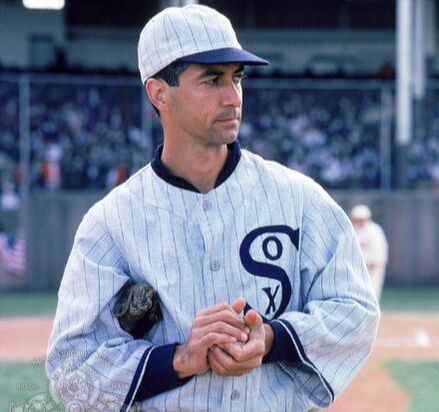 David Strathairn as Ed Cicotte David Strathairn as Ed Cicotte Another sympathetic figure is Ed Cicotte, the aging right-hander who has been promised a bonus if he wins 30 – get this, 30 – games by the penurious owner, Charles Comiskey. When Cicotte, with a sore arm, wins only 29, the owner welshes on the promises. (Again, Sayles stacks the emotional deck by casting his college pal, David Strathairn, whose aching arm is rubbed by his loving wife. Tears for everyone.) The movie – more than the book – is an age-old treatment of the callous rich cheating the workers, gamblers exploiting the proletariat. It’s hard to think along class lines these days, when players make millions of dollars per season, and instead of overlooking the alteration of the body by drugs, the leaders of baseball juice up the ball itself. My favorite part of the movie comes when the eight players realize the gamblers are cheating them, and even the hard-core dumpers decide to take a little October frolic by…why, yes….playing baseball. The sunlight brightens and the Dixieland band accelerates and the players pitch and hit and field like the great team Charles Comiskey assembled. I love watching this cinematic tribute to the game itself – players making the double play, smacking home runs, striking out the opposing Reds, like little kids, not plotters. Perhaps the most innocent of all is the pitcher, Dickey Kerr, 26 and unapproachable, who won the third and sixth game. In later years, this very same Dickey Kerr would manage the Cardinals’ farm team in Florida, and would convert a sore-armed left-hander named Stan Musial into an outfielder because the lad could hit a bit. (The movie doesn’t say so, but the Kerrs would be godparents to the Musials’ first child, who would be named Richard, and the Musials would help the Kerrs buy a house in their old age.) One hundred years ago Tuesday, Ed Cicotte, sore arm and all, pitched a complete game and won.
The gamblers apparently reminded lefty Claude Williams to make nice, and he obediently lost the eighth and final game. A year or so later, all eight were out of baseball. In the centennial season, the scandal seems to have received minimal attention – a SABR research conference in Chicago in late September, some articles in Chicago, often about whether justice was done for the great Shoeless Joe Jackson, who played quite well in the series but was banished anyway. Baseball soon had a tighter-wound ball and Babe Ruth “saved” the game with his home runs well into the 30’s. The moral to the story: when in trouble, tighten up the ball. * * * https://en.wikipedia.org/wiki/1919_World_Series Dickey Kerr: https://www.baseball-reference.com/players/k/kerrdi01.shtml https://jacobpomrenke.com/black-sox/dickey-kerr-the-man-who-made-the-man/ Game 6: https://www.retrosheet.org/boxesetc/1919/B10070CIN1919.htm Game 7: https://www.retrosheet.org/boxesetc/1919/B10080CIN1919.htm 2019; symposium from that great asset, SABR: https://sabr.org/2019-black-sox-symposium It was my first visit to Las Vegas. I was covering a Mets trip to the Coast in 1966 or so, and there was a day off between LA and San Francisco.
My pal Vic Ziegel of the good old New York Post said, “Let’s go to Las Vegas.” Vic had been there before. Flights were cheap. Food was cheap. The only thing that wasn’t cheap was the gambling, but I don’t gamble. Long story. I watched Vic play blackjack and I watched life in Las Vegas. The hotel lounge was also inexpensive. By doing the math in Rickles’ obituary in the Times Friday, I deduce that he was around 40, but in a way he was ageless. Bald. Profane. Cranky. What’s it to you? He had a theme: Anybody who came to see him in that lounge was truly desperate. He pointed out a young couple and wondered if they were married, or cheating on spouses. He pointed out a young man: “He’s thinking, I’m in Las Vegas, I can get rid of my pimples.” Then he recognized Vic as a member of the tribe. A landsman. “Look at that nose,” he said. “What’s your name?” “Vic.” Somehow, Rickles deduced that Vic was the sportswriter from the Post. “Vic Ziegel!” screamed Don Rickles from Jackson Heights, Queens. (Queens boys are a yappy lot.) “I love you guys!” – meaning the good old Post. (I did not count.) Rickles thought about it for a while. “What’s a Ziegel?” he asked the crowd. Comedic pause. Then he touched his own beak. “It’s an eagle. A Jewish eagle. A Ziegel.” That’s all I remember, except laughing a lot. I’m sure Vic could re-create the entire dialogue but unfortunately Vic left the stage in the summer of 2010. He had introduced me to a lot of good stuff on the road – “Beat the Devil” in Cambridge, Mass., him chatting up jazz musician Roland Kirk in some all-night coffee shop on the square in Cincinnati. And Rickles. In 2015, I saw an aging Don Rickles on the Letterman show; I noticed the immense respect Letterman had for him, getting him through the gig. Now Rickles has bowed out. But every time I went back to Las Vegas – to write about boxing or an entertainer – I remembered Don Rickles in that lounge. 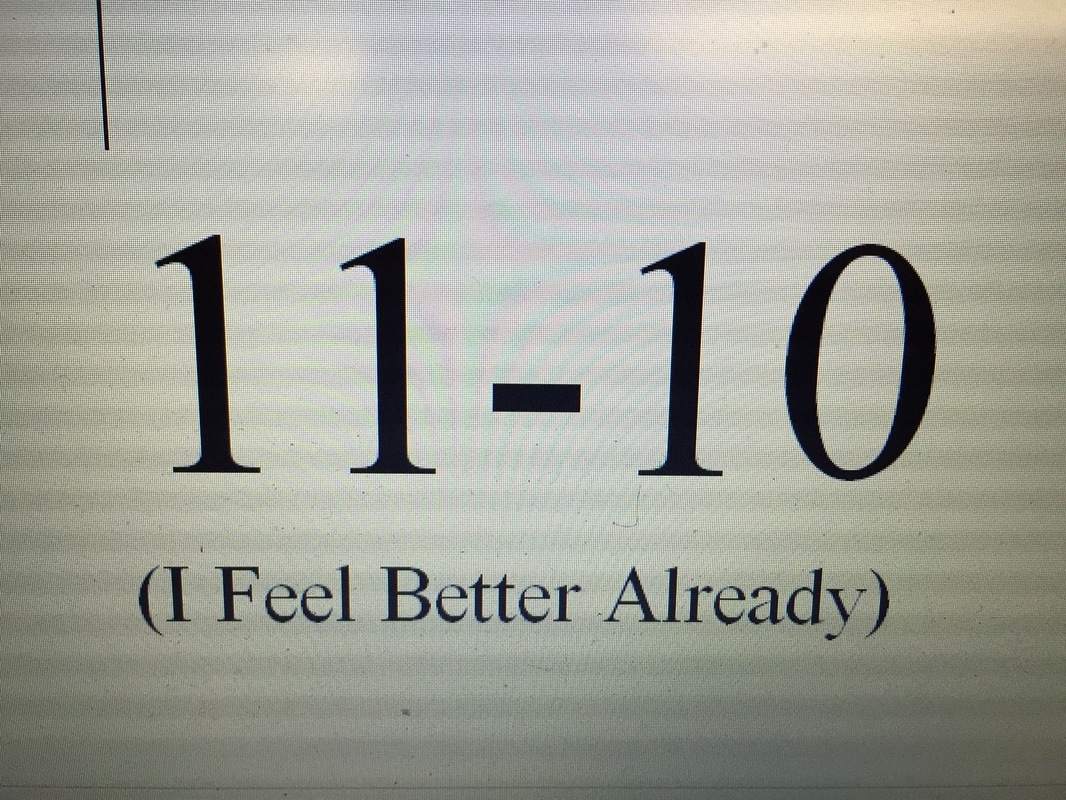 A private investigator I know (perhaps connected to the MI6?) has found current Ladbrokes odds of 11-10 that the impending President will not last four years. Here’s the article:
https://www.inverse.com/article/26292-donald-trump-impeachment-odds Perhaps this is mere wishful thinking from people with a few bob to wager. You could ask, what do the Brits know? They voted for Brexit, against their own self-interest. Still, maybe they are on to something. Are American voters figuring out what they have done? The most recent Quinnipiac poll shows abysmal ratings for any incoming President. Here in P.T. Barnum’s America, some voters who hallucinated a fine religious gentleman or a successful businessman are having misgivings. Here are the numbers: http://www.politico.com/story/2017/01/poll-trump-presidential-transition-approval-233412 I recently wrote that something would get the new guy within 18 months – his tiny attention span, blatant conflicts and legalities, or being 70 and overweight. (Have you seen the latest photos of that neck?) A sex tape would be fine, too. Right now, a lot of people are preparing to demonstrate and lobby. At the same time, a friend in the Bay Area says she’s been crying since the election. I know somebody who has come down with a cursing affliction. Myself, I am hunkering down with a hard-covered book and classical music. Our emotions seem as roiled in a different way as those of McConnell and Boehner and Cantor and Ryan were when an African-American was elected president. Everybody has their own private angst. One of my favorite readers said he would cover my bet about 18 months. Put up or shut up, he said. I don’t bet. But I do root against four years of this guy: A former college basketball star I know sees way too much of the New York Knicks and Philadelphia 76ers.
An intense player and demanding coach once upon a time, my friend has the distinct feeling he is observing a crime being committed. We both knew players, decades ago, who dumped games, shaved points, to satisfy gamblers on one side of the point spread. Some (not all, I suspect) got caught. Many had their lives ruined; a few went to jail. That is not the problem with the 76ers and Knicks, whose cumulative record was a ghastly 10 victories and 63 losses, as of Friday morning. The players are doing their earnest best to win but the owners are doing their dishonest best to keep the talent level down, in order to choose a top star in next spring’s college draft. It enrages my competitive friend to see teams in the National Basketball Association skimping on salaries. He calls me and rails: What is the ethical difference between NBA teams ironically dumping games in plain sight by “virtue” of dumping salaries and the old point shaving by players? My outraged hoopster friend asks if some of the executives’ activities are not some kind of crime, or at least a significant breach of competitive integrity? Why do the NBA poobahs allow such a public breach of faith with its fan base, the ultimate victims. Are the poobahs’ eyes shut to this “gaming of the system?” I wonder if there is not some eager prosecuting attorney out there who could investigate the business tactic of tanking an entire season. And what about the wealthy patrons who pay outrageous prices for seats and so-called food in Madison Square Garden? These folks did not accumulate their riches by being pushovers in their business lives. Is there not a potential class-action suit festering among the expensive suits at courtside? Adam Silver, the still-new commissioner of the NBA, may be preoccupied by his announced goal of allowing gambling on his sport. Gambling used to be considered a vice. Now it is a way of raising money because people don’t like paying taxes for roads and bridges. Meanwhile, Silver has part of his league playing with inferior rosters in an attempt to reload, cover up past personnel mistakes, and take advantage of a system that is anti-competitive. My friend used to dive for loose balls and rage against indifference. Now he sits in front of the tube and watches the Knicks and 76ers stagger around, according to the schemes of their ownerships. I know of a former college player who got caught taking a few dollars to shave a few games. He’s never re-connected with teammates who would love to see him. He lives a clean life, after what he did. But the owners of NBA clubs sit in the front row and smirk. Shouldn’t there be laws against owners blatantly trying not to win? Whether it’s the owners or the players, dumping a game or a season emits the same foul odor. Some numbers catch your attention. Last Sunday I read in The New York Times that the vertical gambling den in Connecticut known as Foxwoods is currently $2.3-billion in debt. Who knew?
I took this news personally. Every time my wife and I visit her family’s cemetery near Ledyard, we cannot help but notice the Foxwoods towers looming over the countryside like a gigantic mold spoor. My wife’s cousin, Faith, who died way too young, is buried in the family plot, and so is her grandmother, who was something of a psychic, and her grandfather, a little old Yankee railroad worker, who was such easy company. My wife’s ancestors found their way into the hills behind Mystic not long after the Pilgrims landed further up the coast. You could say that the Pequot were there first, and that is certainly true, but nearly four centuries count for something. Now whatever passes for the dispersed Pequot run the gambling complex in the eastern part of the state. Cars and buses zoom just a few miles from hamlets where my wife’s people led such ordered lives. My wife, who spent her early childhood swimming in Long Island Sound or skating on frozen coastal ponds, can remember visiting family farms in the hills, picking blueberries. We are not of that inland place. Whenever we pay our respects to cousin Faith, we gun the engine toward Boston or New York. I will admit that when we make this detour, I have been known to say an inchoate prayer for the de-profanation of the Connecticut hills. I’ve seen gambling up close. Seen what it does. Like Woody Allen turning into a Hasid when he visits Annie Hall’s home in rural Wisconsin, when I spot that blight against the Connecticut sky, for at least the next few minutes I turn into a Puritan. * * * The poet Laura Vecsey walks her own shoreline: http://www.lauravecsey.com/pilgrims-are-made-not-born.html |
Categories
All
|
